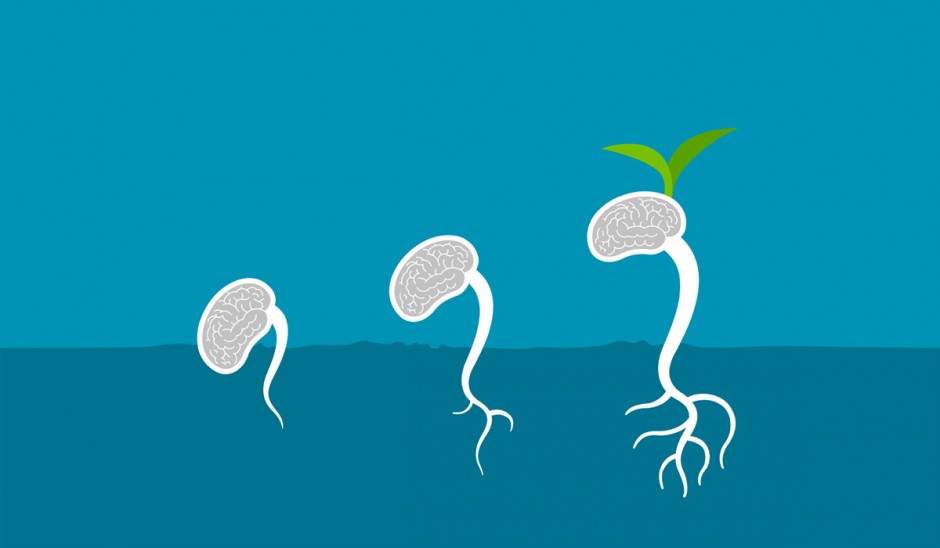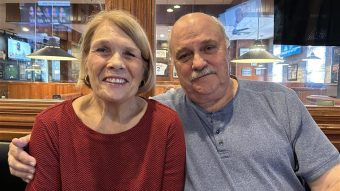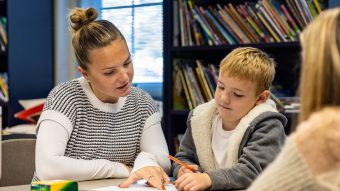Story by Genevieve Conti
Photos by Shane Epping
Talk to students at the Harry S Truman School of Public Affairs, and they’ll likely tell you how they want to change the world.
They’re not waiting until after graduation, though. In fact, one group of graduate students is already making a difference in Columbia through the Grant Writing Program, a student-led group that pairs teams of graduate students with local nonprofits to help them identify, research and write proposals for grants.
Growing an Idea
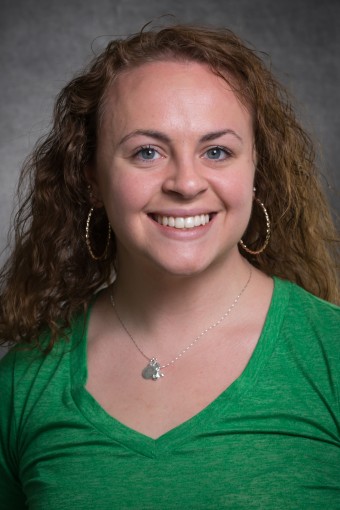
The program was started in 2009 by Jennifer Keller Jensen, who has since graduated with master's degree in public affairs.
“She was a very active student in the community,” says Emily Johnson, staff adviser for the program and the associate director for the Institute of Public Policy. “She was on a couple different boards and commissions, and every time she got together with these nonprofit leaders they talked about having the same type of needs. They didn’t always have the expertise, skills or capacity in terms of staff time to put the energy they needed into writing grants.”
Jensen worked with faculty members to get the program off the ground.
From there, it has grown significantly, and today the program has two part-time student coordinators and as many as 50 participants each semester. To date, 40 different organizations have partnered with the program.
Program leaders have started encouraging graduate students in other disciplines, such as public health, social work and law, to join. One of this year’s two student coordinators, Jennifer Cacchio, is working on her master's degree in public health.
Learn as You Go
Students are broken up into teams of three to four people. Each team is assigned to a partner organization for a semester. Along the way, they get guidance and training from the student coordinators, faculty and staff advisers.
The program emphasizes patience and practice rather than pressure and deadlines.
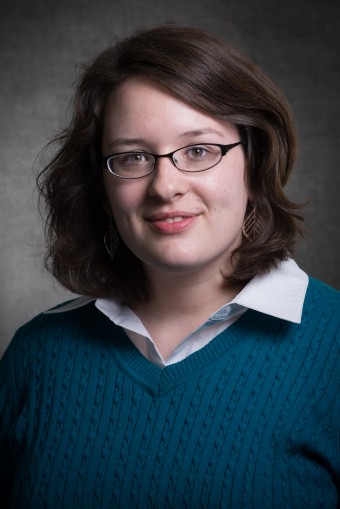
“Typically, only about 30 percent of grant applications receive funding, and generally those are written by professionals,” says Joanna Warren, the second student coordinator, who will graduate in May with a master's degree in public affairs and a certificate in grant writing. “So for students going into it, it’s more about learning the process, and if they get funded in the end, that’s awesome, but we don’t consider it a failure if that doesn’t happen.”
Jessica Macy, executive director of the Boone County Council on Aging, a nonprofit that has partnered with the Grant Writing Program since it formed in 2009, says for her organization, the relationship has to be mutually beneficial.
“We try to make it really meaningful for us and for the student,” Macy says. “They might not have all the i’s dotted and the t’s crossed, but they’re learning.”
So far, the program has had several successes in getting grants funded.
In 2011, students from the program helped Welcome Home, a local nonprofit that assists veterans, secure more than $41,000 in funding from the Office of Veterans Affairs.
In 2012, a team of students helped secure a $3,000 grant for Access Arts, as well as grants for Heart of Missouri Court Appointed Special Advocates (CASA) and Renew Missouri.
Most of the time, teams shoot for grants around $5,000.
“We’re not trying to make or break any organization,” Warren says. “We want to give students the chance to learn some valuable skills and also give the organization funding that will help them grow.”
Even if grants aren’t funded, organizations still get value from the partnership.
“We don’t always get product we can submit, but we get product that we didn’t have before that enables me to use bits and pieces of it somewhere else,” Macy says.
The Bigger Picture
Like many of their fellow students, Cacchio and Warren have big plans for the future.
Cacchio is currently working on two separate water-sanitation projects with Engineers Without Borders.
“I’d like to get involved with something like sustainability, environmental responsibility or environmental justice,” she says.
Warren says after she graduates, she wants to work with a nonprofit at a national or international level to help solve big-picture problems such as hunger, access to education or access to clean water.
Their aspirations for the future are grand, but they recognize the good they can do right here in Columbia.
“Any time we can connect students to Columbia, especially students who aren’t from here, to me that’s important,” Macy says. “Nonprofits can play a role in that by showing them the value of our community.”
Stepping outside the campus “bubble” makes a lasting impression on students and community members.
“Something I’ve also really gotten out of it is learning all the different work that’s done in Columbia,” Cacchio says. “Coming at it from a health perspective, it’s very encouraging to know there are so many people working to try and improve the health status or socioeconomic status or employability, all those things that have such a big impact on a community as a whole. There’s so much good work done in this city.”
